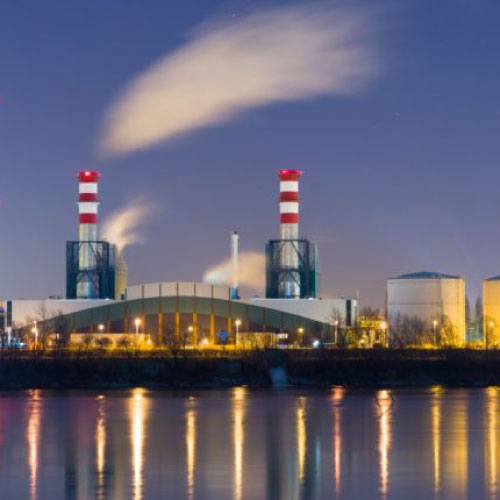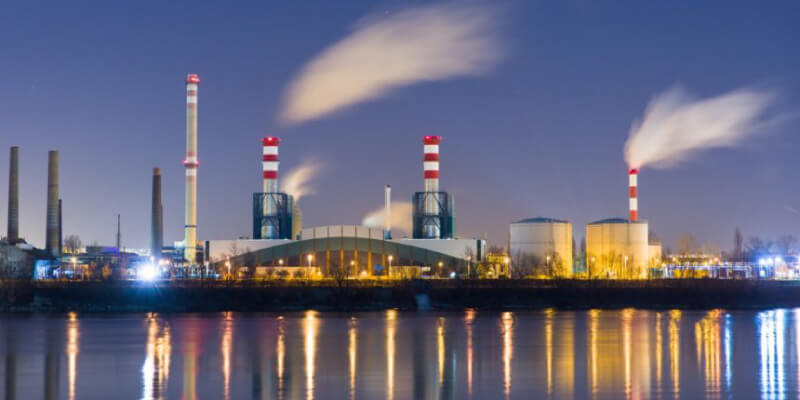Energy consumers and producers alike bear moral and environmental responsibilities – and cannot neglect future generations, argues Chandran Nair.
HONG KONG: Mitigating climate change will be the most daunting challenge of this century. Fortunately, years of effort and calls to action by environmental experts and other specialists are making an impact on popular attitudes. Less fortunately, most of us still grope in the dark trying to find a credible framework to structure an adequate response.
Much faith has been placed in market-based solutions such as carbon-emissions trading. But while such measures may lead to curbing – even reducing – emissions in developed countries, they will almost certainly fall flat in developing countries, especially the fast-growing economies of China and India, where 40 percent of the global population lives.
The reality of such measures is that the rich nations demand sacrifices of people who are scratching a miserable living. Even in booming China, almost half the population, more than the entire US or European population, still struggles to get by on US$2 or less a day. No government, democratic or otherwise, will adopt complex global trading schemes run by foreign interests and risk dashing their people’s economic aspirations.
But laying blame elsewhere or invoking inequities to defend inaction will not change the fact that relentless consumption – on the march in every corner of the world – can only increase the use of fossil fuels. We must look for other answers.
One such area which has received almost no attention to date is the behavior of the world’s principal fossil- fuel producers. These can be divided in various ways – between principal crude-oil producers and exporters including Middle Eastern states such as Saudi Arabia, Iran, Kuwait and the United Arab Emirates, plus Russia, Mexico, Canada and Venezuela, and the principal coal producers and exporters, including China, the United States, India, Russia, Australia and Indonesia.
These can also be divided another way – between those with high per-capita carbon-dioxide emissions and those with low emissions.
Unsurprisingly, those with high emissions are also rich – the US, Australia and Canada plus the wealthy states of the Gulf, Saudi Arabia, the United Arab Emirates, Qatar and Kuwait.
Put simply, among the wealthy members of the world’s core group of fossil-fuel producers are the world’s worst carbon-dioxide producers. Other countries may be rich, but tend to use far less fossil fuels and energy per capita: Japan, for example, the world’s second largest economy, ranks 32nd in terms of per-capita emissions, far below the world’s largest economy, while the US, ranks 10th, with the top nine positions dominated by small rich nations.
While the populations of these countries combined amount to less than 10 percent of the world population, their per-capita carbon-dioxide emissions range from five to 20 times that of the world’s poorer countries, including China and India.
These countries have a responsibility – moral and environmental – to cut emissions. They should commit to reducing per-capita emissions by half as soon as possible and strive for the current global average, given that some leading scientists predict the world already approaches the safety threshold of CO2 concentrations in the atmosphere.
This is not a pipe dream. Japan’s per-capita emissions – 9.8 tons – are half those of the US and Canada’s total of 20 tons, and a quarter of the UAE and Kuwait’s total of 38 tons.
Sadly, we see the opposite behavior, with excesses unfolding in places like the UAE, with extreme urban development embracing indoor ski slopes to underwater hotels.
And inhabitants of the western Australian city of Perth, on the back of a resources boom, now have the largest “ecological footprint” per capita, 9 hectares per person, of any city in the world. The ecological footprint is defined as the economic, social and environmental costs associated with resource consumption, land use and impacts on the bio-sphere.
Such extravagance is possible only because of super-cheap energy and unrestrained resource exploitation. In Abu Dhabi, electricity costs 3 cents per kilowatt hour – compared to 40 cents in Europe – and petrol, at 30 cents a liter, is cheaper than water.
So while it’s often said that environmental damage and poor decisions on sustainability are due to the lack of funding as governments make a trade-off with the need for economic growth – the truth is the exact opposite.
It isn’t China or India that should be seen as the worst culprits when it comes to climate change, but some of the world’s richest states – which also happen to be well-endowed with fossil-fuel resources.
We need to remind these energy-producing countries that they have a responsibility to strike a balance between their desire to keep driving economic growth and an awareness that decisions taken today may well compromise the ability of others and future generations to share in the common good.
On a domestic level, these rich energy producers must make dramatic changes in the way they view environmental protection and sustainable-development initiatives. This means pricing oil and other energy sources properly within their own borders and curbing excessive use.
Limits can be achieved only by tough and even draconian regulatory policies enforced by individual countries. Measures could include the use of creative financial instruments implemented locally to incentivize carbon reduction and thereby also allow for deployment of appropriate technology.
And on an international level, these producers must assume greater responsibility towards the stewardship of their resources. Yes, oil and other fossil fuels have been key to the world’s economic growth over the last two centuries, but simultaneously it has taken us to the brink of climatic disaster.
Given that the main producer nations do not need to generate more wealth from energy exports to sustain their populations, a limit on exports would be a prudent way to discourage rampant consumption globally. It would also encourage those that need more energy for economic growth to focus on greater efficiency and developing alternative sources, including nuclear energy.
Taking the “producer responsibility” principle one step further – especially at a time when oil prices keep hitting new record highs – we should also require energy producers to put part of their fossil-fuel revenues towards aggressively developing and commercializing technologies to reduce emissions, capture carbon dioxide and even make renewables such as hydro, wind and solar as well as nuclear energy viable alternatives for global use.
Such initiatives must move beyond embracing the gimmicks around sustainability such as the public-relations blitz surrounding the pursuit of carbon-neutral cities in the Gulf countries or emissions-trading schemes of Europe and the US.
Channeling funds to global-sustainability initiatives could occur by implementing a global tax on key producers, for creating a fund that would support development of cost-effective, efficient, clean forms of energy.
And on an international level, these producers must assume greater responsibility towards the stewardship of their resources. Yes, oil and other fossil fuels have been key to the world’s economic growth over the last two centuries, but simultaneously it has taken us to the brink of climatic disaster.
Given that the main producer nations do not need to generate more wealth from energy exports to sustain their populations, a limit on exports would be a prudent way to discourage rampant consumption globally. It would also encourage those that need more energy for economic growth to focus on greater efficiency and developing alternative sources, including nuclear energy.
Taking the “producer responsibility” principle one step further – especially at a time when oil prices keep hitting new record highs – we should also require energy producers to put part of their fossil-fuel revenues towards aggressively developing and commercializing technologies to reduce emissions, capture carbon dioxide and even make renewables such as hydro, wind and solar as well as nuclear energy viable alternatives for global use.
Such initiatives must move beyond embracing the gimmicks around sustainability such as the public-relations blitz surrounding the pursuit of carbon-neutral cities in the Gulf countries or emissions-trading schemes of Europe and the US.
Other uses for the fund could include implementing conservation measures in poor countries or even addressing chronic problems of underdevelopment – a much better use of excess wealth than building futuristic cities or snow resorts in the desert.
The Gulf nations, the US, Canada and Australia should take the lead in supporting, creating and managing this fund with the help of wealthy nations such as Japan and the EU.
Acting together, these energy-producer nations have the financial muscle to make a huge difference – and can go a long way towards helping the world put together an overall framework to coordinate responses from around the world and allow us to stop thinking in a piecemeal fashion. The threat of climate change can be justified in both a just and effective manner.


























